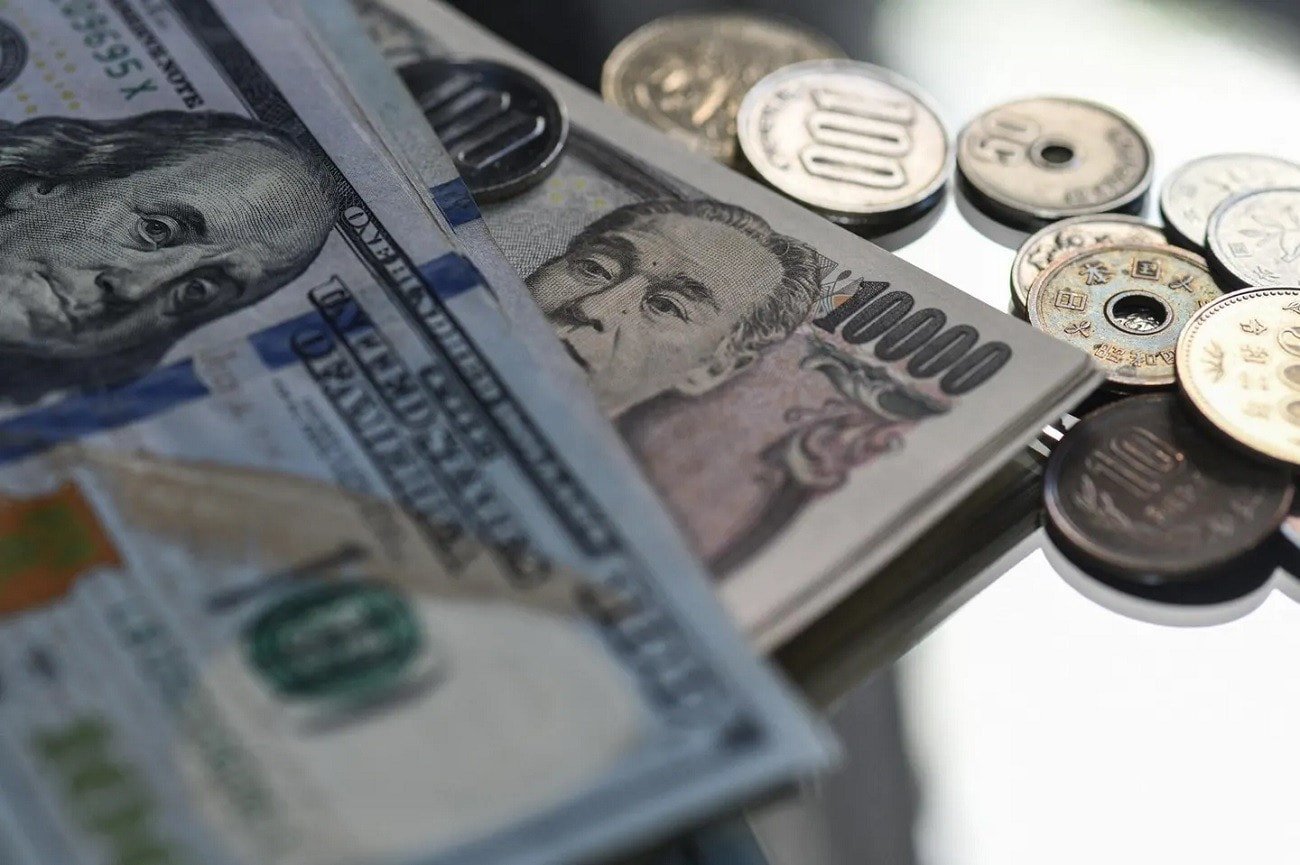Updated at 9:00 a.m. on Thursday (May 1, 2025), the Japanese Yen exchange rate at domestic banks decreased slightly, while in the international market, the USD/JPY exchange rate fluctuated around 143 when US and Japanese economic data sent mixed signals.
Domestic Yen Rate
Today's Japanese Yen exchange rate surveyed at the end of May 1, 2025 at banks, specifically as follows:
At Vietcombank , the Vietcombank Japanese Yen exchange rate is 175.59 VND/JPY and the selling rate is 185.68 VND/JPY.
At Vietinbank , the buying and selling Yen exchange rates are equivalent to 178.69 VND/JPY and 188.69 VND/JPY.
At BIDV bank, the buying and selling rates of Japanese Yen reached 178.74 VND/JPY and 187.04 VND/JPY, respectively.
At Agribank, the Japanese Yen buying and selling rates are 178.38 VND/JPY and 186.56 VND/JPY, respectively.
At Eximbank, the buying and selling rates are 178.91 VND/JPY and 186.14 VND/JPY, respectively.
At Sacombank, the buying and selling rates of Japanese Yen are 176.15 VND/JPY and 186.18 VND/JPY, respectively.
At Techcombank, the buying and selling rates are 175.44 VND/JPY and 185.84 VND/JPY, respectively.
At NCB bank, the Japanese Yen exchange rate is 176.31 VND/JPY for buying and 186.67 VND/JPY for selling.
At HSBC bank, the buying rate of Japanese Yen is 178.27 VND/JPY and the selling rate is 186.13 VND/JPY.
According to the survey, today's Japanese Yen exchange rate at Eximbank is the bank with the highest Japanese Yen buying rate and Techcombank is the bank with the lowest Japanese Yen selling rate among banks.
Yen exchange rate on the "black market"
Today, May 1, 2025, surveying the black market, the Japanese Yen/VND exchange rate was traded at 182.46 VND/JPY for buying and 183.66 VND/JPY for selling.
In Hanoi, the largest currency exchange street in Hanoi that helps you exchange many types of foreign currencies is Ha Trung currency exchange street. At Ha Trung currency exchange street, you can exchange popular foreign currencies on the market today such as USD (US dollar), Euro, Yen (Japanese Yen), Won (Korean Won), ... and many other currencies. Therefore, the Ha Trung Japanese Yen exchange rate is also a keyword that readers are interested in and Quoc Trinh Ha Trung store is an address that is advertised a lot on social networks. However, when exchanging money at these foreign currency streets, you need to comply with the regulations of Vietnamese law.
Developments in the Japanese Yen exchange rate on the international market
The Japanese Yen edged up against the US Dollar on Thursday, pulling the USD/JPY exchange rate close to 143.00. The move reflected investor caution following a series of disappointing economic data from both the US and Japan.
The latest report from the US Bureau of Economic Analysis showed that GDP in the first quarter of 2025 unexpectedly decreased by 0.3%, contrary to the expectation of 0.4% growth. This is the first quarterly decline since 2022, mainly due to lower government spending and a sharp increase in imports. Meanwhile, the core PCE inflation index - one of the US Federal Reserve's favorite policy measures - cooled down to 2.3% as expected, while the labor market also gradually lost momentum with only 62,000 new jobs created in April.

In Japan, the yen has maintained its status as a safe haven amid slowing global growth. Despite weak domestic data, with industrial production falling 1.1% in March and retail sales rising below expectations, the yen has seen steady buying amid concerns about the recovery prospects of the world’s third-largest economy.
Forecast of Japanese Yen exchange rate trend
Amidst the uncertainties, analysts believe that the USD/JPY exchange rate may continue to fluctuate within a narrow range. In the market, technical indicators such as RSI and MACD show that investor sentiment is still divided, reflecting a short-term correction trend.
Focus now shifts to upcoming economic data, especially the US non-farm payrolls (NFP) report and the manufacturing PMI, which could shape the Fed's monetary policy stance going forward.
On the other hand, the Bank of Japan (BoJ) is expected to keep its interest rate policy unchanged at its upcoming meeting to avoid putting further pressure on the weakly recovering economy. However, the possibility of the BoJ gradually normalizing its policy cannot be completely ruled out, especially when large domestic companies have begun to propose significant wage increases, a signal that inflation may be more sustainable in the medium term.
Meanwhile, US President Donald Trump's commitment to reduce import tariffs on components and progress in trade negotiations with partners such as China and Canada are also shaping positive expectations, causing investors to continue to closely monitor policy developments from the two major economies.
Source: https://baodaknong.vn/ty-gia-yen-nhat-hom-nay-1-5-dong-yen-tang-nhe-khi-usd-suy-yeu-251224.html




















































![[Maritime News] More than 80% of global container shipping capacity is in the hands of MSC and major shipping alliances](https://vphoto.vietnam.vn/thumb/402x226/vietnam/resource/IMAGE/2025/7/16/6b4d586c984b4cbf8c5680352b9eaeb0)












































Comment (0)